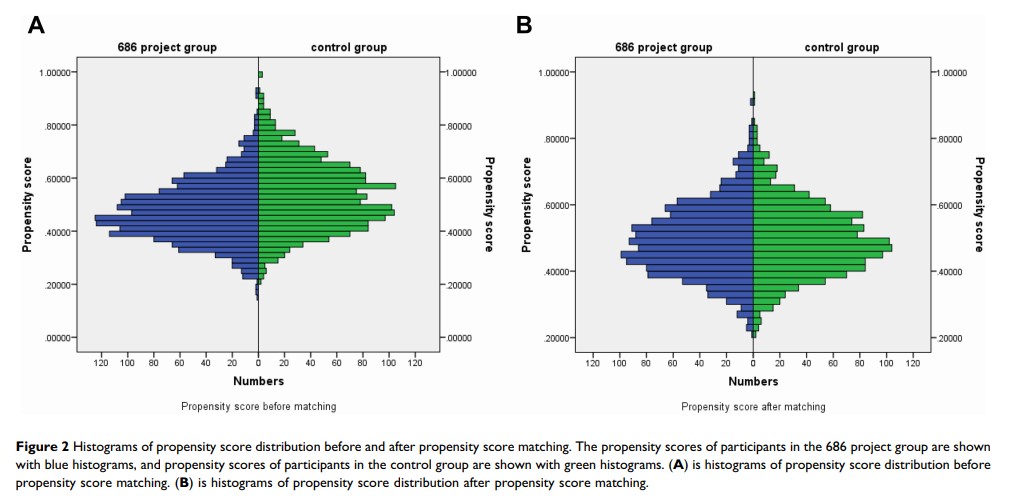109814
论文已发表
注册即可获取德孚的最新动态
IF 收录期刊
- 3.4 Breast Cancer (Dove Med Press)
- 3.2 Clin Epidemiol
- 2.6 Cancer Manag Res
- 2.9 Infect Drug Resist
- 3.7 Clin Interv Aging
- 5.1 Drug Des Dev Ther
- 3.1 Int J Chronic Obstr
- 6.6 Int J Nanomed
- 2.6 Int J Women's Health
- 2.9 Neuropsych Dis Treat
- 2.8 OncoTargets Ther
- 2.0 Patient Prefer Adher
- 2.2 Ther Clin Risk Manag
- 2.5 J Pain Res
- 3.0 Diabet Metab Synd Ob
- 3.2 Psychol Res Behav Ma
- 3.4 Nat Sci Sleep
- 1.8 Pharmgenomics Pers Med
- 2.0 Risk Manag Healthc Policy
- 4.1 J Inflamm Res
- 2.0 Int J Gen Med
- 3.4 J Hepatocell Carcinoma
- 3.0 J Asthma Allergy
- 2.2 Clin Cosmet Investig Dermatol
- 2.4 J Multidiscip Healthc

中国严重精神疾病患者药物依从性的相关因素:倾向评分匹配研究
Authors Dou L, Hu L, Zhang N, Cutler H, Wang Y, Li S
Received 28 March 2020
Accepted for publication 26 June 2020
Published 31 July 2020 Volume 2020:14 Pages 1329—1339
DOI https://doi.org/10.2147/PPA.S255934
Checked for plagiarism Yes
Review by Single anonymous peer review
Peer reviewer comments 2
Editor who approved publication: Dr Naifeng Liu
Objective: The 686 project provides free essential drugs and follow-up for poor SMD patients, with the purpose of improving patients’ medication adherence and reducing the occurrence of dangerous behaviors. The objective of this research was to determine the factors that influence medication adherence in patients with severe mental disorders (SMD) and analyze whether the 686 program significantly improved patient medication adherence.
Methods: This study was conducted among SMD patients in 686 project and non-project SMD patients in the same community in 11 cities in Shandong Province of China. The data collected included basic patient information and disease treatment information. Medication adherence was divided into good adherence and poor adherence. Propensity score matching (1:1 match) was performed to adjust for differences in baseline characteristics.
Results: One thousand two hundred ninety-two patients receiving free medication assistance policy (686 project group) and 1292 non-policy patients (control group) were analyzed. Patients who received the 686 project group had significantly better medication adherence than the non-policy group patients (92.6% vs.61.2%). Older age and consolidation period were associated with poor adherence, and education level was the positive determinant for adherence.
Conclusion: The 686 project could improve medication adherence to patients with SMD. Additional research will pay attention to medication adherence of patients who are elderly, in consolidation period and lower education levels. It should strengthen the guidance and supervision of patients’ medication and strengthen the health education of family members and patients.
Keywords: medication adherence, severe mental disorders, propensity score matching
